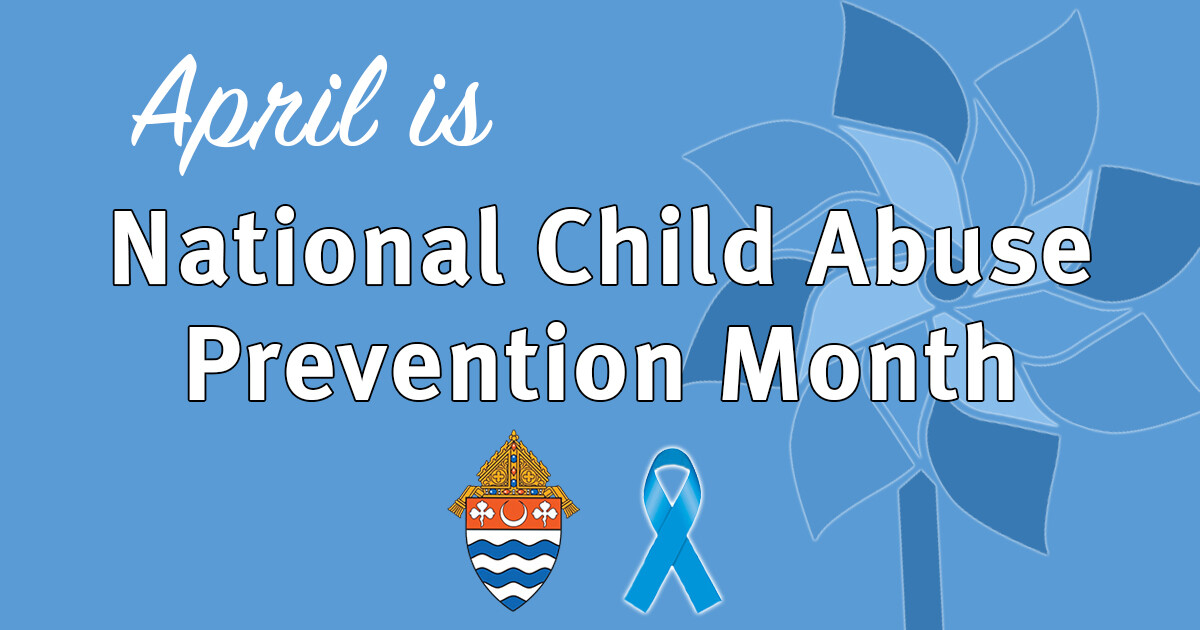Preventing child abuse is the key to the future
Prevention means “to keep from occurring, avert, hinder” or to “keep [impede someone] from doing something.” During April— National Child Abuse Prevention Month — the professionals who provide services to children and families who experience child abuse, as well as the media, will make a special effort to raise awareness about the scope of the problem of child abuse in our society. They will also point out the steps we must take to prevent this kind of harm to our children and our families.
For the last five years, the bishops of the Catholic Church in the United States have turned their attention to educating adults about the nature and scope of the problem of child sexual abuse and how we can prevent it from happening to our children. Recent VIRTUS® articles have pointed to some exciting examples of how adults are taking these messages to heart and looking at each situation that arises to see whether there is a risk to children.
The Archdiocese of Newark is committed to helping survivors of childhood sexual abuse heal. Gina Criscuolo, the Coordinator of the Office of Accompaniment, a Licensed Clinical Social Worker, provides compassionate and supportive assistance to those who have been the victims/survivors of child sexual abuse. Please visit www.rcan.org and click Safe Environment, or call 973-497-4210.
Obviously, the goal is to prevent child sexual abuse from ever happening by recognizing the behaviors of adults who are a risk of harm to children and then intervening before abuse occurs. As adults, we know that it is our job to protect our children, but we can’t do it alone. If our children don’t know and understand the risk, and if they don’t have the tools they need to resist the overtures of a child molester, our efforts are hampered.
Preventing child sexual abuse is a partnership. It requires education, training, and action from parents, other adults, organizations, and children. As adults, we need to learn to recognize other adults who are a risk to kids—ours and the others in the community. As organizations, we must establish appropriate screening and supervision tools that keep us from inadvertently allowing known sex offenders to work with our children. Finally, we must teach our children how to resist the overtures of a child molester.
During the grooming process, there are certain behaviors in which a molester engages that prime a child for victimization. There are things that we can do as adults that will dramatically influence the child’s ability to see through those efforts. We can empower children through education. to realize that they have the right to say “no” and tell someone when they feel uncomfortable about anything.
Let children know they can tell you anything
As adults who genuinely care about children, we must continually work at keeping communication open. Parents, grandparents, guardians, and other caring adults have a responsibility to teach our children the values that are important to us and help them know what is right and wrong as they grow up. In addition to teaching them about the things that are bad for them, we must let them know that they can tell us anything. They need to know that they can always tell us the truth because we will always love them. This is particularly important when we are teaching children the touching rules. They need to know that no matter what anyone else says, any touch that makes them feel uncomfortable is not okay, and they have the right to say “no,” or words that mean “no” and to get away from that person as quickly as possible. We must also be sure that they know that they can tell us what happened and ask for help.
They also need to know that if an adult shows them something they are not supposed to see or allows them to do something they are not supposed to do, it is okay to tell their parents. Secrets only cause more hurt.
Be comfortable with the subject matter
This may be easier said than done for many of us. We are not comfortable talking about the touching rules with our children because it comes perilously close to talking about “sex.” However, one of the best ways to assure our children that they can talk to us about anything is to be open to whatever they have to say to us.
Talk with the other parent or another adult friend until you are comfortable with the subject matter and sure you can deal with anything your child says. Our children need to be able to count on us to listen to them, support them, and help them when they are in trouble.
It will be years before we know whether our prevention efforts worked. However, we do know that if we do nothing, child molesters will continue to prey on our children and take advantage of parents who are strained to the limit. During National Child Abuse Prevention Month, take time to talk with your child about these issues. Prevention is the best medicine.
This article was originally published by VIRTUS® and was reprinted here with permission.



